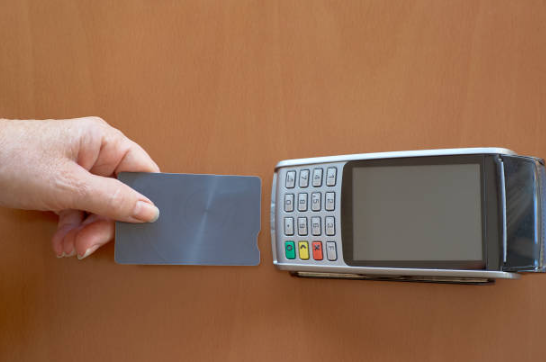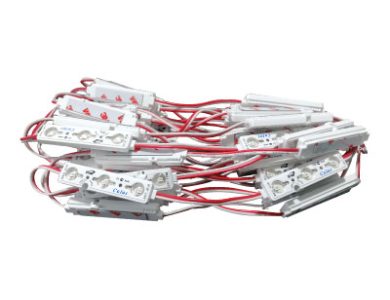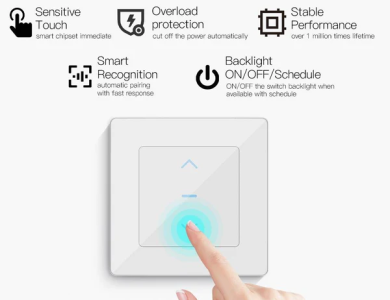In the digital age, networking has evolved far beyond the traditional exchange of paper business cards. One of the most innovative and efficient ways to exchange contact details is through NFC (Near Field Communication) business cards. These smart cards enable users to instantly share information with just a tap of a smartphone, eliminating the need for paper, reducing costs, and preventing manual data entry errors.
As we embrace more digital interactions, a common question arises: Can you track who scans your NFC business card? In this article, we’ll delve into the tracking capabilities of NFC business cards, how they work, what data can be collected, and best practices for leveraging this technology in professional networking.
Understanding NFC Technology
What is NFC (Near Field Communication)?
NFC is a wireless communication technology that enables devices to exchange data over short distances, typically within 4 cm (1.5 inches). It’s based on RFID (Radio Frequency Identification) but allows two-way communication, making it suitable for tasks like payments, ticketing, and business card sharing.
With NFC chips embedded in smartphones, tablets, and business cards, users can store and share URLs that link to professional profiles, vCards, or other digital content. With a quick tap, recipients can access contact information instantly.
How NFC Works in Business Cards
An NFC business card contains a small NFC chip embedded within the card. When tapped with an NFC-enabled smartphone, the chip signals the phone to open a URL or vCard. This URL might direct users to:
- A professional website
- A LinkedIn profile
- A portfolio or resume
- Contact details
This process happens seamlessly, allowing you to update information remotely without reprinting your card—a major advantage over traditional business cards.
The Benefits of NFC Business Cards
1. Instant Sharing of Information
With NFC business cards, sharing information is as simple as a tap. This eliminates the need for manual data entry and reduces human error, ensuring a seamless networking experience.
2. Eco-Friendly and Cost-Effective
Since NFC cards are reusable, they reduce the environmental impact of reprinting paper cards. Over time, they become more cost-effective, especially for professionals who frequently update their contact details.
3. Customization and Personalization
NFC cards can be linked to dynamic content, allowing users to personalize their networking strategy. For example, you can direct different audiences to tailored websites or portfolios.
4. Contactless Interaction
In a post-pandemic world, contactless solutions are increasingly valued. NFC cards facilitate safe, hygienic exchanges of information, making them ideal for conferences, meetings, and networking events.
Can You Track Who Scans Your NFC Business Card?
Tracking Capabilities in NFC Technology
Yes, you can track scans, but this depends on the platform or tools you use. NFC technology alone doesn’t have tracking capabilities, but linking your NFC card to a digital platform with analytics tools allows you to gather insights into user interactions.
Types of Data You Can Track
When someone scans your NFC business card, the following data can often be collected:
- Number of Scans: Track how frequently your card is tapped.
- Location: Determine the city or region where the scan occurred (based on IP address).
- Device Information: Identify the type of device used (e.g., Android or iOS).
- Time and Date: See when your card was scanned to understand engagement patterns.
- Engagement Metrics: Platforms may show how long users interacted with your linked content or which links they clicked.
Privacy Considerations and Limitations
Tracking raises privacy concerns. To comply with regulations like GDPR (General Data Protection Regulation) or CCPA (California Consumer Privacy Act), ensure your practices are transparent. Inform users if tracking occurs, and avoid collecting sensitive information without explicit consent.
How Can Tracking Be Done on NFC Business Cards?
1. NFC Business Cards with Integrated Tracking Features
Some providers offer NFC cards with built-in analytics, giving real-time data on scans, locations, and devices through an online dashboard.
2. NFC Cards Linked to Cloud-Based Platforms
By linking NFC cards to cloud-hosted content, you can use the platform’s tracking features to gather insights about user behavior.
3. Using Analytics Tools with NFC Cards
Integrating third-party tools like Google Analytics allows you to track advanced metrics, such as user demographics and engagement, enhancing your networking strategy.
4. QR Codes and Links for Tracking
Adding a QR code alongside your NFC chip can make tracking even easier. QR codes can direct users to URLs that are monitored for click rates and engagement, complementing NFC capabilities.
Best Practices for Tracking NFC Business Cards
1. Respect Privacy and Data Protection Laws
Ensure your tracking practices comply with data protection regulations. Avoid collecting personally identifiable information (PII) unnecessarily.
2. Use Data Responsibly
Leverage tracking data to enhance your networking efforts. For instance, if scans peak during specific events, adjust your strategy to capitalize on that engagement.
3. Continuously Optimize Your Efforts
Analyze tracking data regularly to identify trends and optimize your networking activities. Use insights to refine your content, links, and overall approach.
Challenges in Tracking NFC Business Cards
1. Privacy and Ethical Concerns
Users may be uncomfortable with being tracked without their knowledge. Always practice transparency and seek consent where required.
2. Technological Limitations
Not all NFC platforms offer detailed analytics. Select tools that meet your specific tracking needs.
3. User Errors and Inaccuracies
Technical issues or user errors, such as failed taps, can result in incomplete or inaccurate tracking data.
Alternatives to NFC Business Card Tracking
1. QR Codes
QR codes can serve as an alternative to NFC, offering similar tracking capabilities through URL redirection.
2. Digital Business Cards
Digital business cards hosted online often come with built-in tracking, eliminating the need for NFC chips or QR codes.
3. Third-Party Apps
Some apps integrate with NFC tags to provide detailed tracking analytics, offering a convenient solution for professionals.
Conclusion
Tracking NFC business card scans is not only possible but also highly valuable for improving networking strategies. By choosing the right platform and tools, you can collect metrics such as scan frequency, user engagement, and location data. However, it’s crucial to respect privacy laws, use data responsibly, and address any technological or ethical challenges.
Incorporating NFC business cards into your professional toolkit can revolutionize the way you connect and engage, giving you a cutting-edge advantage in the digital networking landscape.




